Abstract
The effects of a prosthetic memory aid on the conversational content and social skills of dyads with dementia were evaluated. Six individuals with moderate to severe dementia served as either subject or partner in dyads during 5-min conversational probes conducted three times per week in day-care and nursing-home settings. During phases when a memory aid, consisting of personally relevant picture and sentence stimuli, was available, most subjects used their own aid to improve the quality of conversations by increasing the frequency of on-topic statements, diminishing nonproductive utterances, lengthening their conversational turn, and/or increasing the frequency of turns taken. Most partners demonstrated awareness of social discourse conventions by appropriately relinquishing conversational dominance, decreasing both content and nonproductive utterances, and increasing acknowledging or affirmative comments when subjects used memory aids. Naive judges' ratings of aided and unaided conversational samples on seven conversational dimensions reflected differences in perceptions of significant improvement as a function of the conversational discourse style of each dyad.
Full text
PDF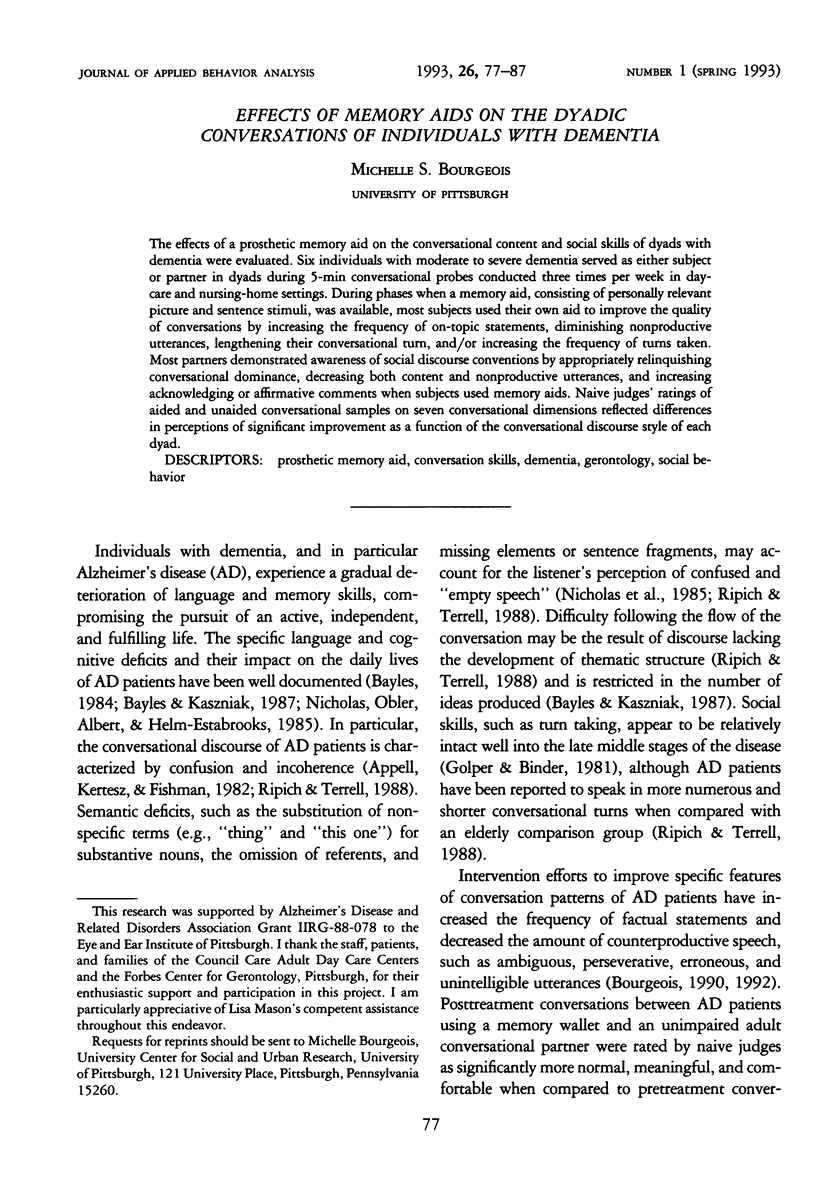
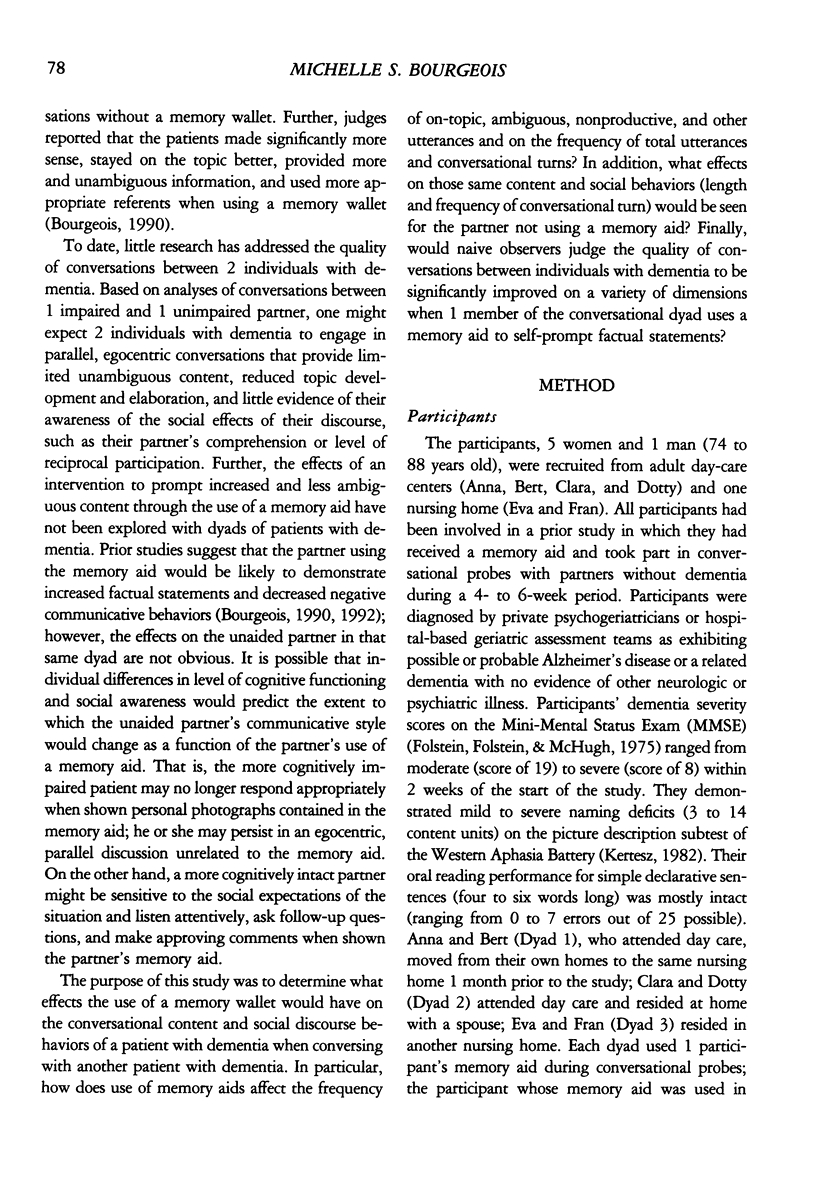
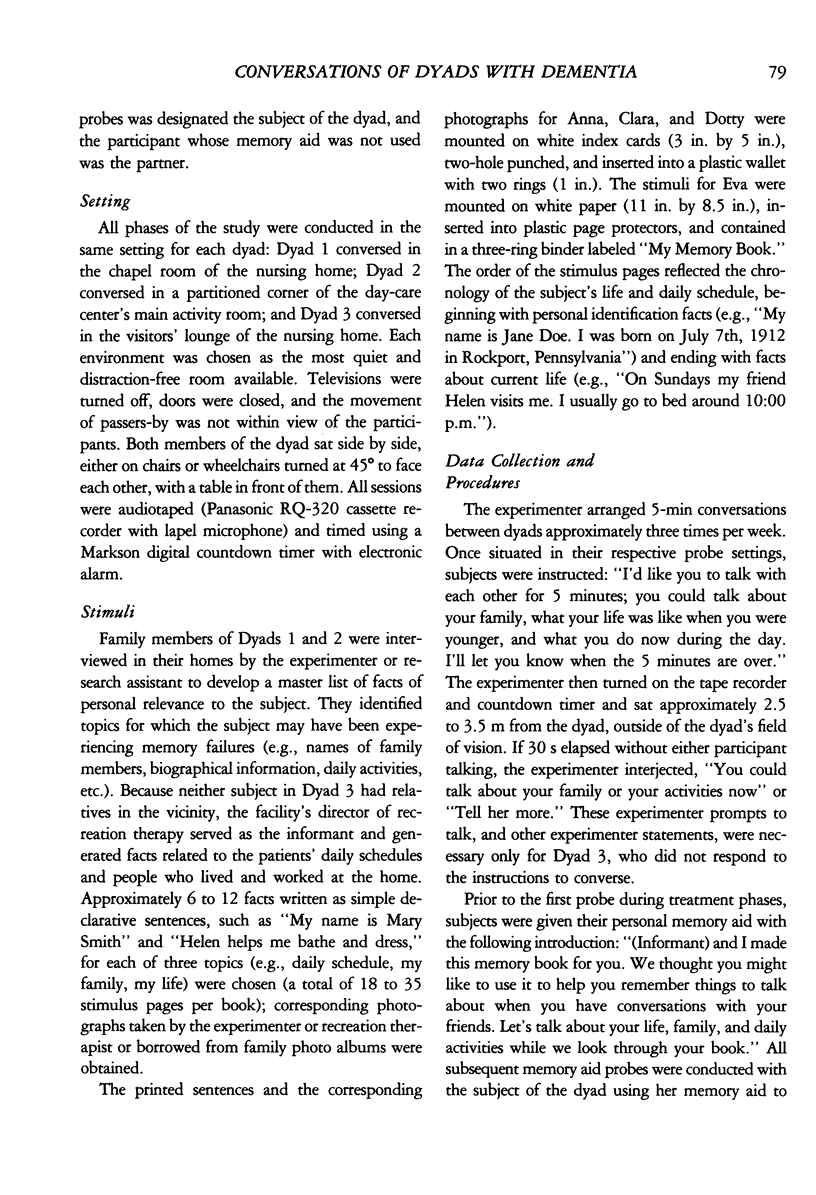
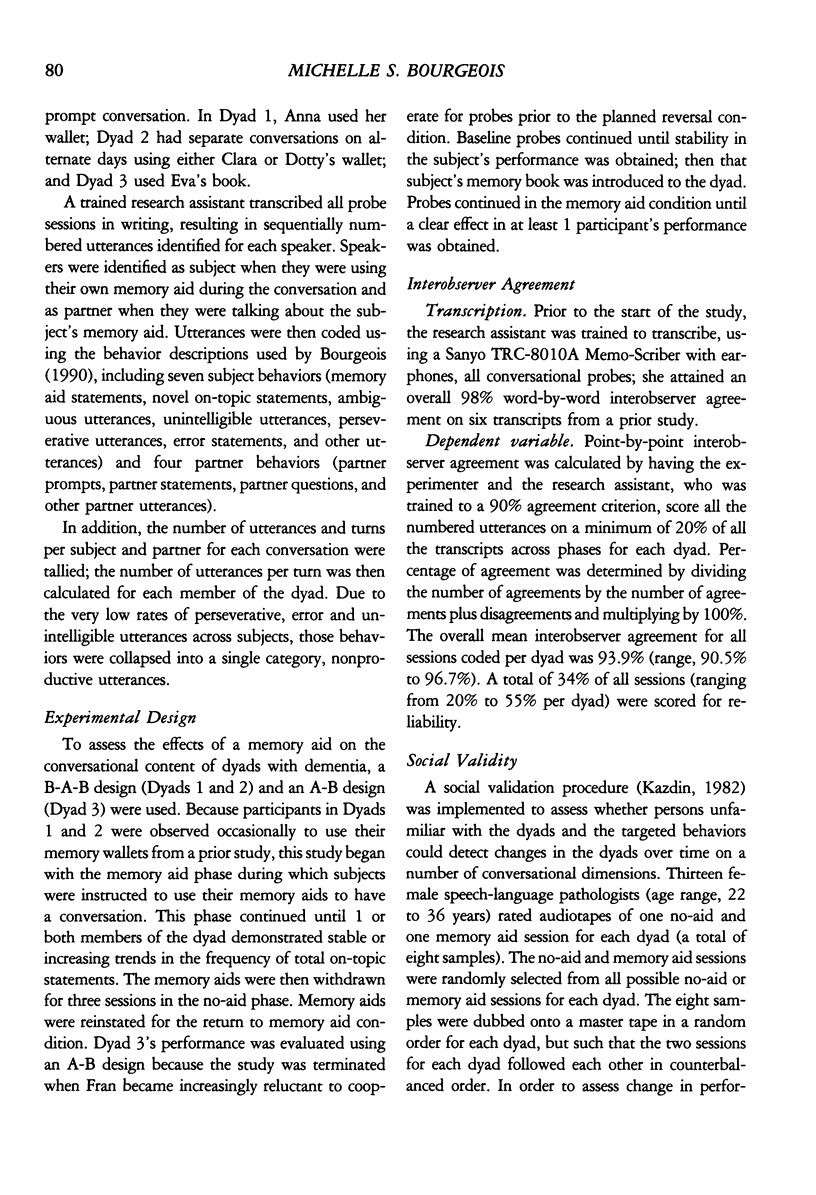
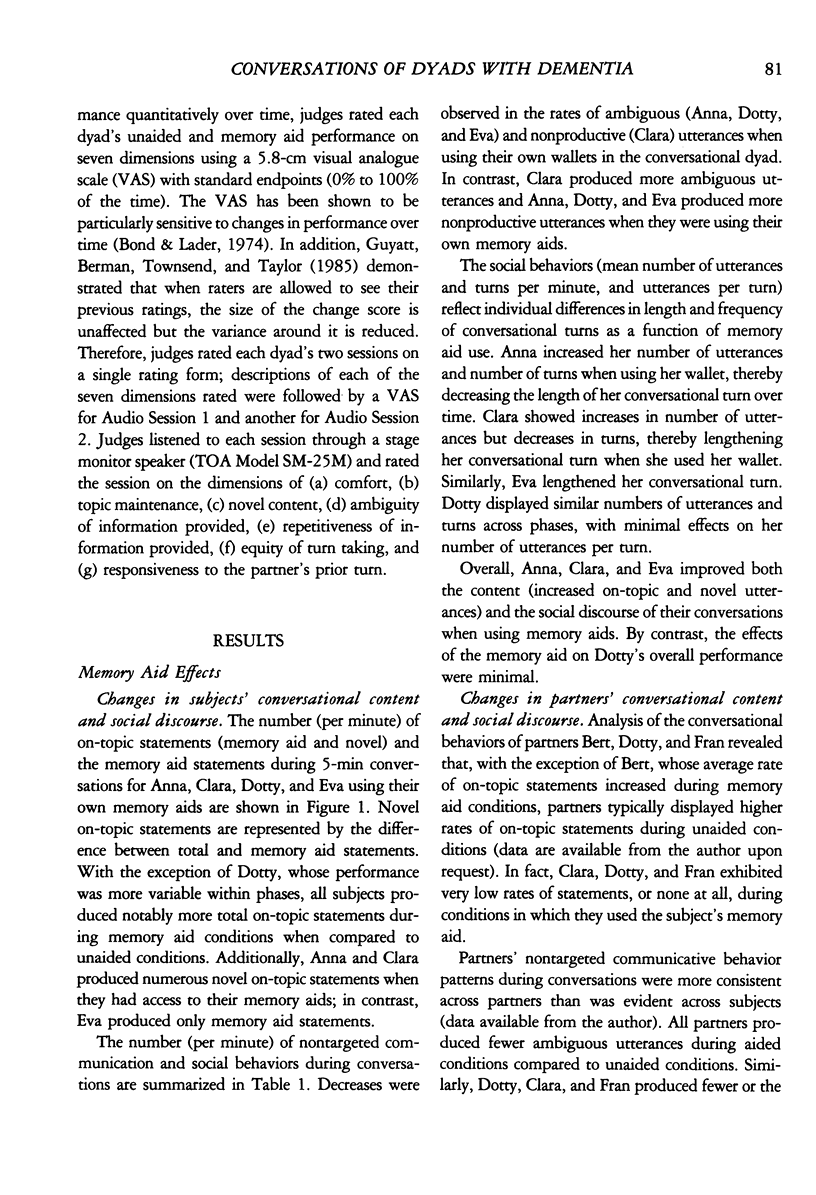
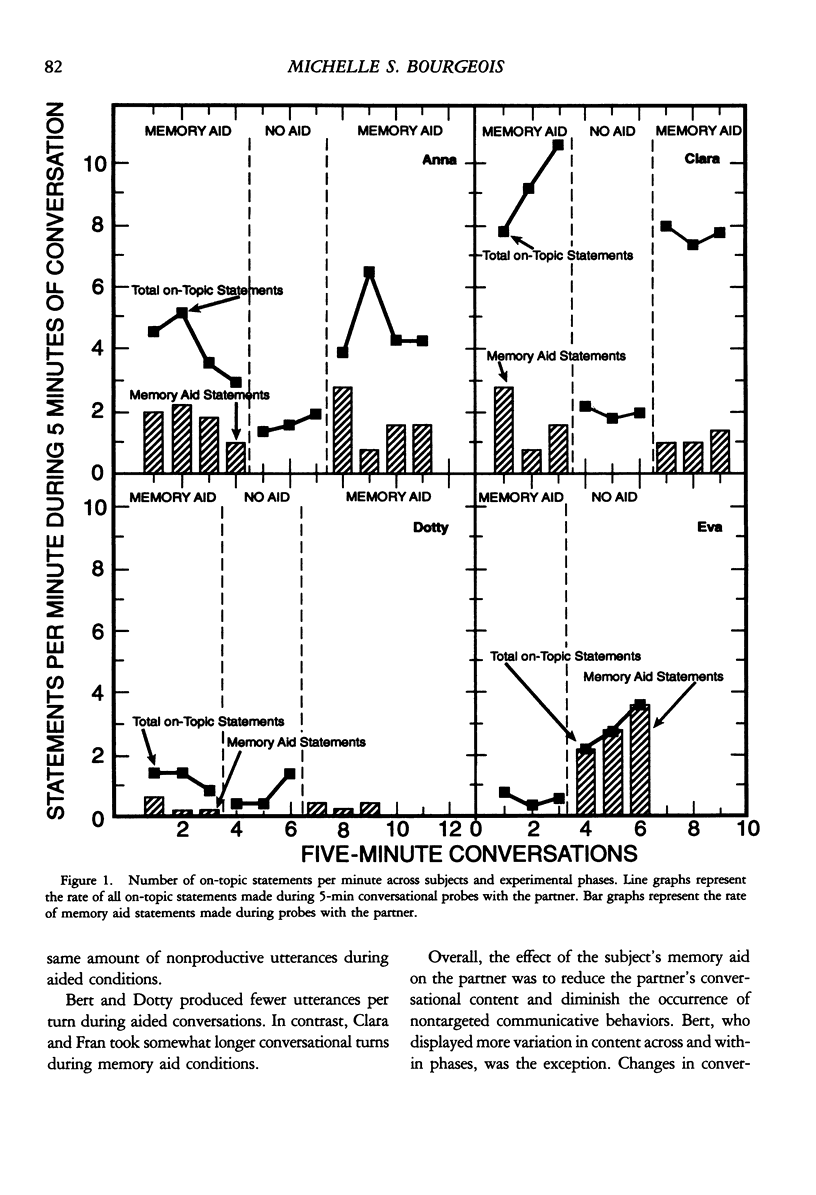
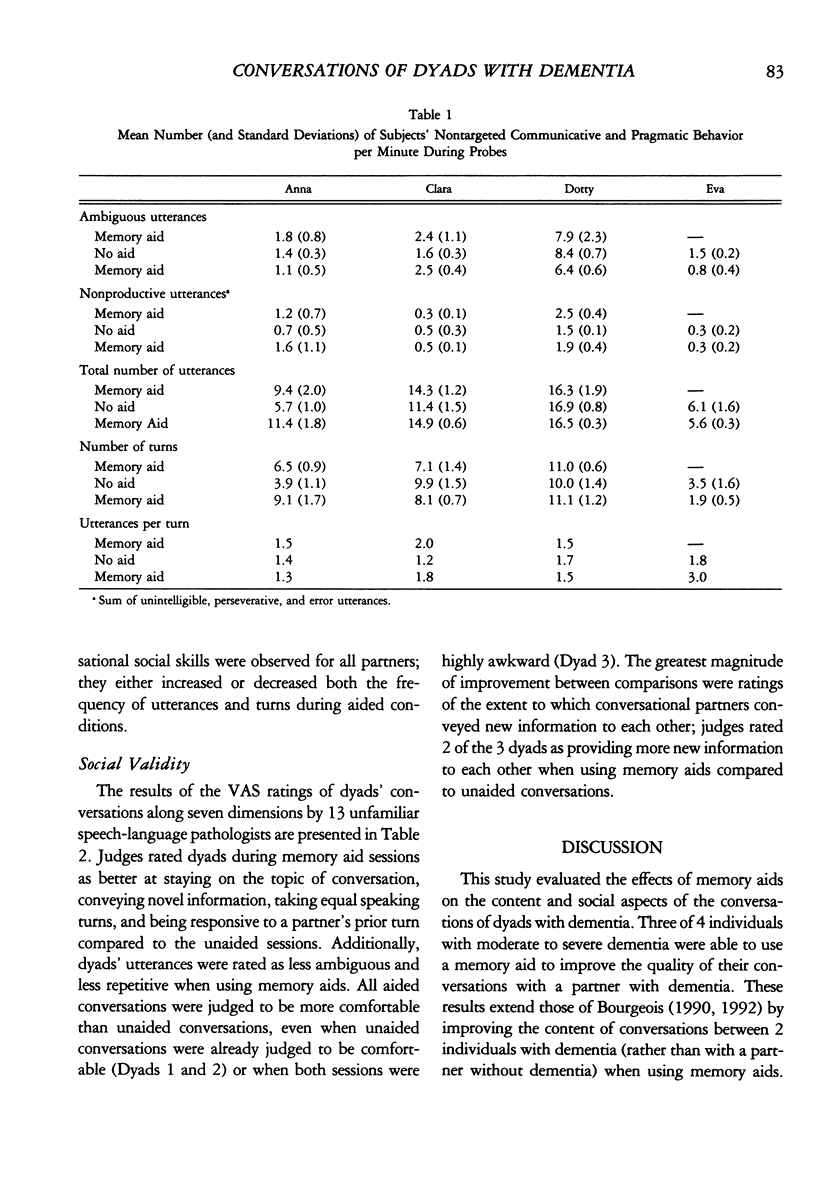
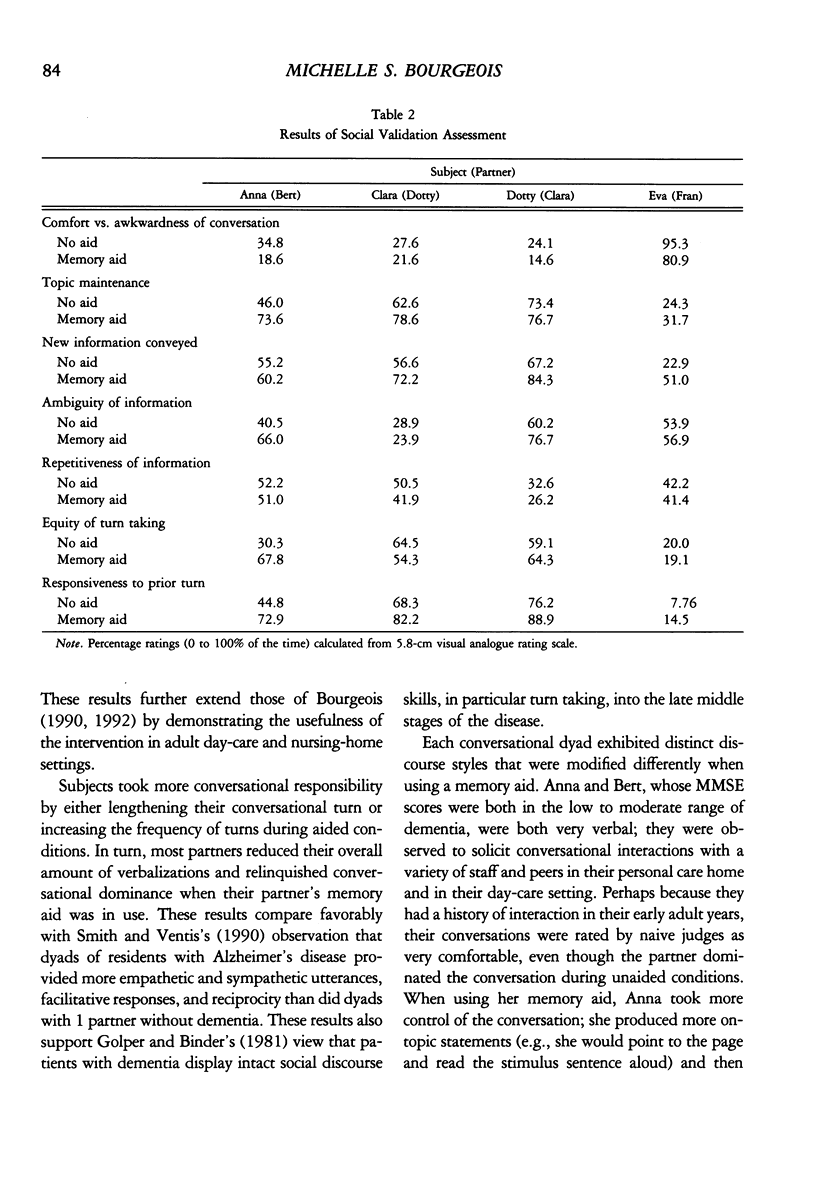
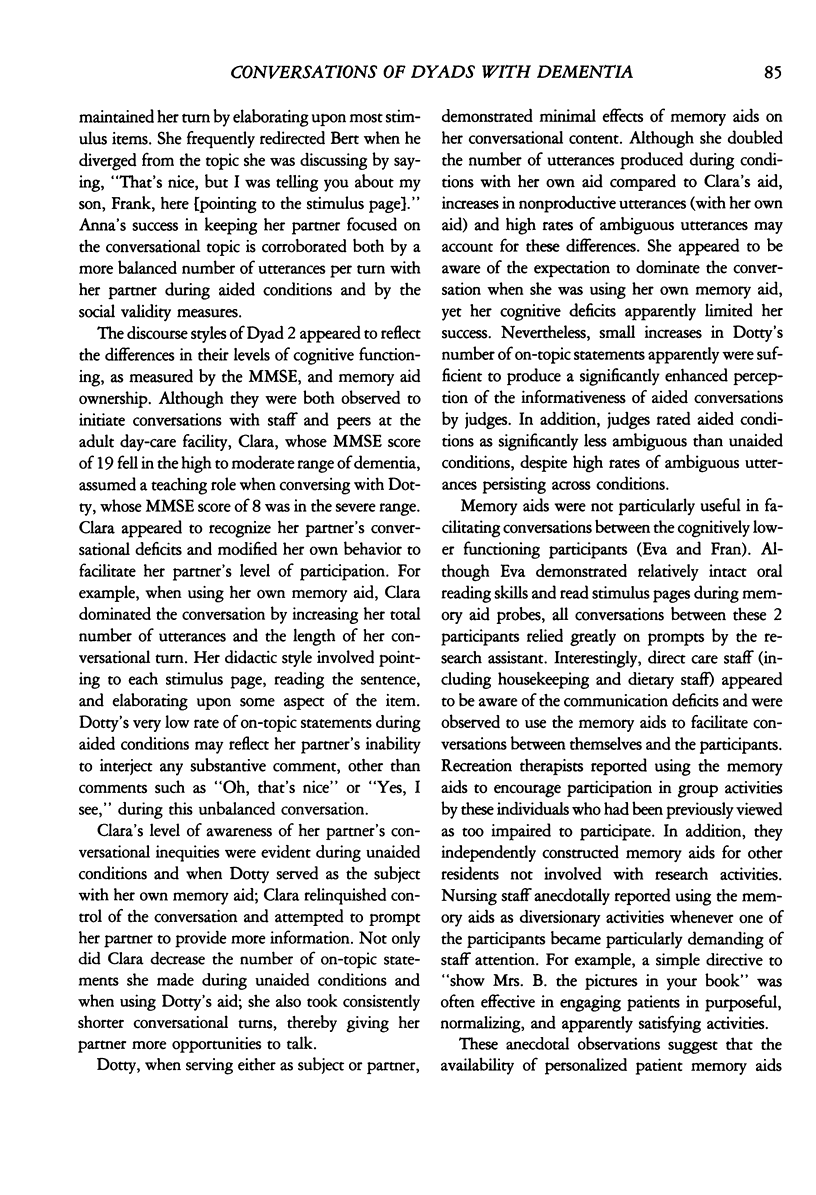
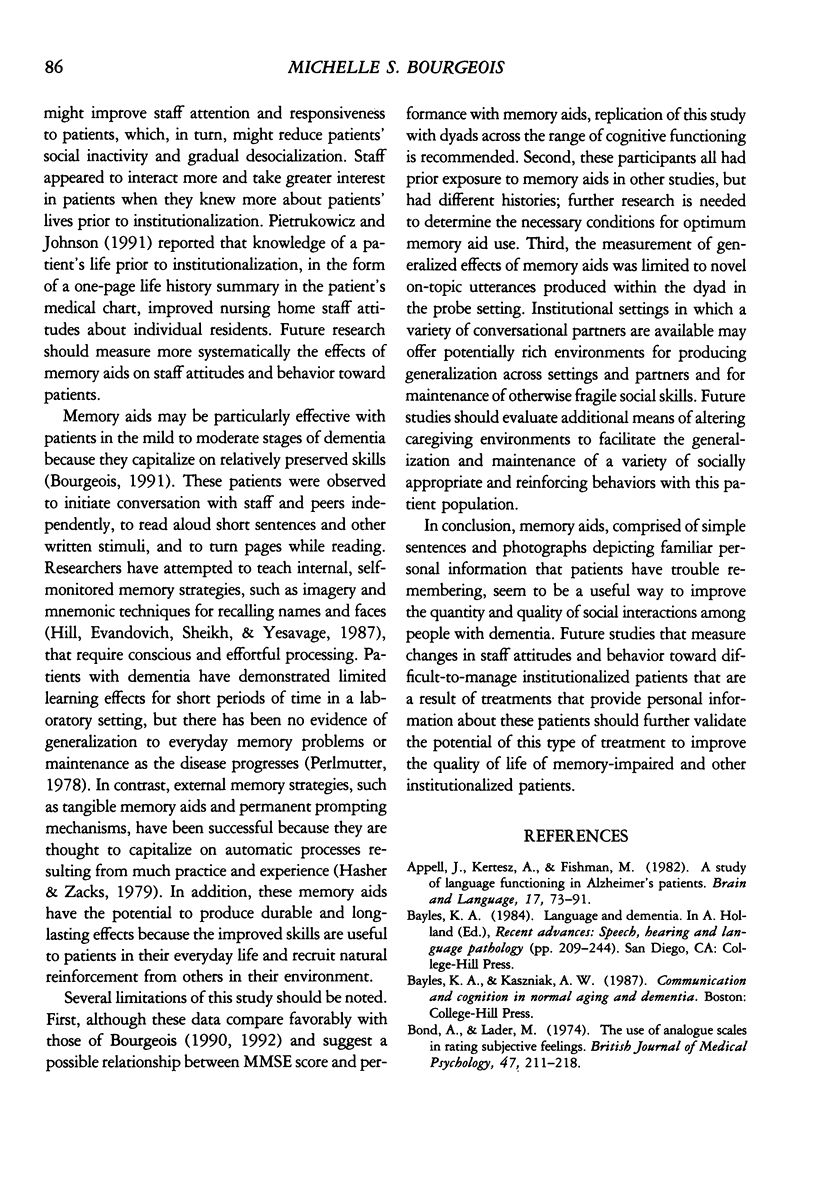
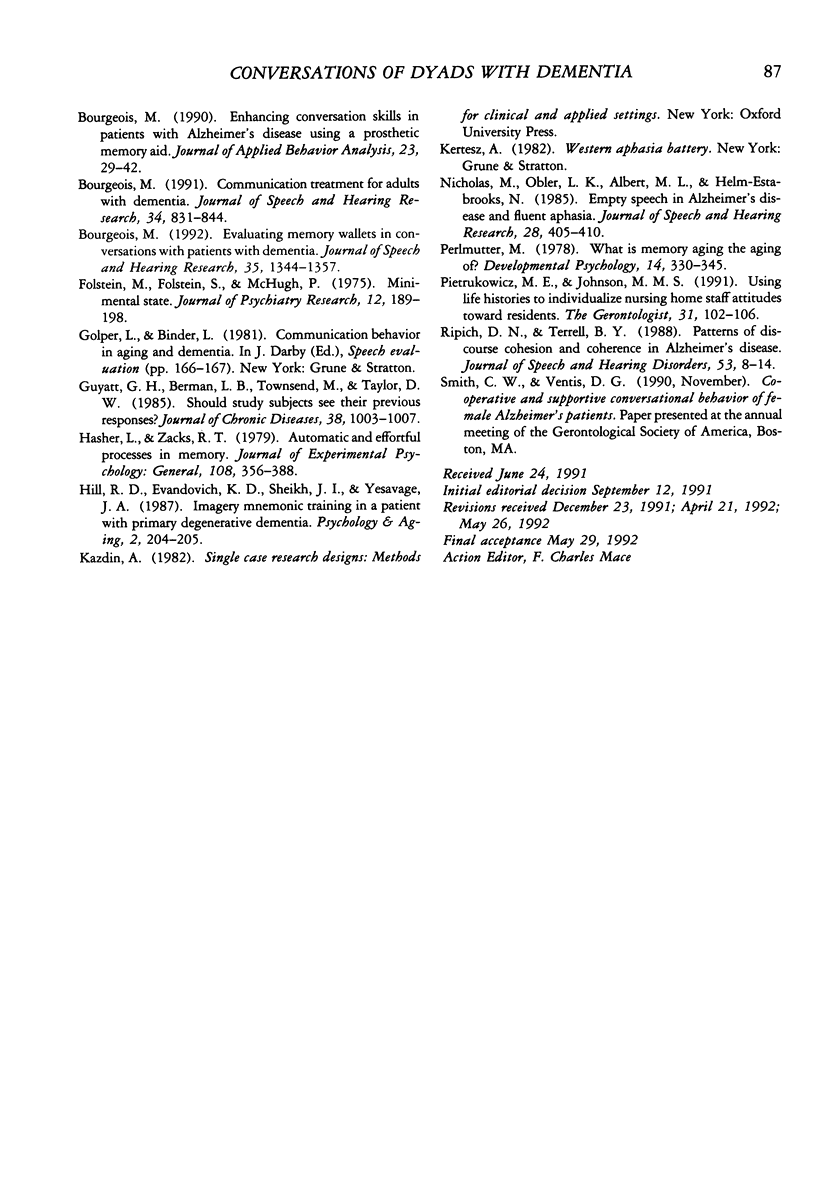
Selected References
These references are in PubMed. This may not be the complete list of references from this article.
- Appell J., Kertesz A., Fisman M. A study of language functioning in Alzheimer patients. Brain Lang. 1982 Sep;17(1):73–91. doi: 10.1016/0093-934x(82)90006-2. [DOI] [PubMed] [Google Scholar]
- Bourgeois M. S. Communication treatment for adults with dementia. J Speech Hear Res. 1991 Aug;34(4):831–844. doi: 10.1044/jshr.3404.831. [DOI] [PubMed] [Google Scholar]
- Bourgeois M. S. Enhancing conversation skills in patients with Alzheimer's disease using a prosthetic memory aid. J Appl Behav Anal. 1990 Spring;23(1):29–42. doi: 10.1901/jaba.1990.23-29. [DOI] [PMC free article] [PubMed] [Google Scholar]
- Folstein M. F., Folstein S. E., McHugh P. R. "Mini-mental state". A practical method for grading the cognitive state of patients for the clinician. J Psychiatr Res. 1975 Nov;12(3):189–198. doi: 10.1016/0022-3956(75)90026-6. [DOI] [PubMed] [Google Scholar]
- Guyatt G. H., Berman L. B., Townsend M., Taylor D. W. Should study subjects see their previous responses? J Chronic Dis. 1985;38(12):1003–1007. doi: 10.1016/0021-9681(85)90098-0. [DOI] [PubMed] [Google Scholar]
- Hill R. D., Evankovich K. D., Sheikh J. I., Yesavage J. A. Imagery mnemonic training in a patient with primary degenerative dementia. Psychol Aging. 1987 Jun;2(2):204–205. doi: 10.1037//0882-7974.2.2.204. [DOI] [PubMed] [Google Scholar]
- Nicholas M., Obler L. K., Albert M. L., Helm-Estabrooks N. Empty speech in Alzheimer's disease and fluent aphasia. J Speech Hear Res. 1985 Sep;28(3):405–410. doi: 10.1044/jshr.2803.405. [DOI] [PubMed] [Google Scholar]
- Pietrukowicz M. E., Johnson M. M. Using life histories to individualize nursing home staff attitudes toward residents. Gerontologist. 1991 Feb;31(1):102–106. doi: 10.1093/geront/31.1.102. [DOI] [PubMed] [Google Scholar]
- Ripich D. N., Terrell B. Y. Patterns of discourse cohesion and coherence in Alzheimer's disease. J Speech Hear Disord. 1988 Feb;53(1):8–15. doi: 10.1044/jshd.5301.08. [DOI] [PubMed] [Google Scholar]


